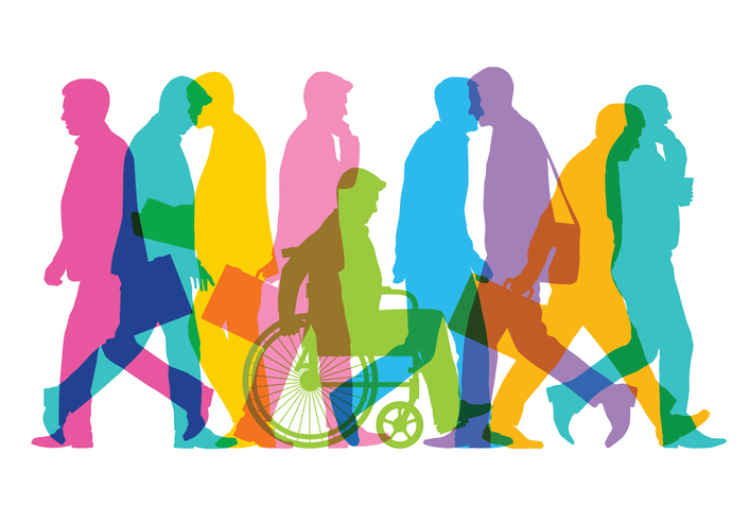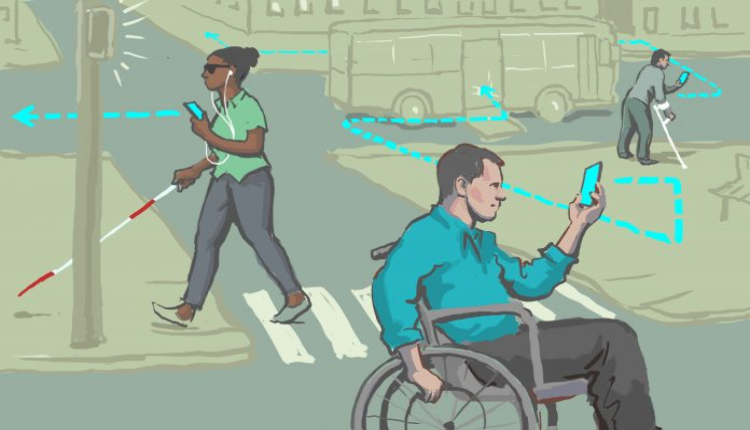All-Access Pass | What is Able-Bodied Privilege?
Fewer men than women second-guess themselves before venturing outside, or down a dark street, alone at night. Far fewer children born to homeowners, than children born to refugees, know what it’s like to go to bed hungry or to not know where you’ll be living in a week’s time.
Likewise, it can be difficult and even impossible for the able-bodied to successfully imagine what life is like for our disabled and differently abled brothers and sisters.
What we’re talking about is able-bodied privilege. Like white privilege, it’s a tough thing to grasp if you’re a member of the group that’s being called out. But it’s an important concept to understand and keep in mind as we all, to one extent or another, help decide what kind of future we want and what kind of people we want to be.
What Is Able-Bodied Privilege?
The best way to answer this is to ask a follow-up question: When was the last time your body got in the way of you doing something you wanted to do? If the answer is “never” or “not recently,” then you’re privileged indeed.
Like many other things in life, the degree to which we are able to do something, compared to somebody else, is something we often unknowingly allow to separate us into hierarchies. Like gender, race, and sexual orientation, for folks who have privilege, there is “normal” and there is everything (and everybody) else.
In fairness, this isn’t always done intentionally. We’ve all got our blind spots when it comes to how we deal with others. But we don’t get to choose many of our circumstances, which means we need to exercise some creativity and empathy when we consider how other people live, how they interact with the world around them, and how they’re treated by folks who find them “different.”

Able-bodied privilege, in a nutshell, means living under the assumption that everybody else on earth can speak, hear, see, and get around, more-or-less the same way we do, with a similar amount of ease. When we scale this idea up to the size of a civilization, we begin to understand why the Americans With Disabilities Act was simultaneously an overdue and laudable milestone, as well as a condescending, half-baked failure. It was also how major tech companies only recently figured out that blind people need phones, too.
Because the world is built for the able, first, and everybody else is left playing catch-up. That, and we collectively don’t usually bother listening hard enough to pick out the voices from the din who need representation of their own, or a leg up, or urban design that doesn’t slow down a wheelchair.
Able-bodied privilege is less about who you are and more about the things you don’t have to worry about in life. And through no fault of their own, a lot of people have a lot more worries than others. Achieving mindfulness of this fact won’t change the world overnight, but it can start moving things in that direction.
What Are Some Examples of Able-Bodied Privileges?
We’ve covered a few examples of able-bodied privileges that most of us don’t think about very often. Things like hearing, seeing, speaking, and moving around under our own power.
But there are more existential privileges attached to being able-bodied, too.
When was the last time you felt undesirable or unattractive because there’s something “wrong” with your body? Do people shoot you pitying looks all day long? Do others tend to make assumptions about what you can and cannot do for yourself?
Glasses and contact lenses are godsends and hearing aids can literally change people’s lives. How much of your monthly earnings go towards medical devices? Or treatments? Or medications?
Do you see people like you, or people looking out for your interests, in government? Do you feel represented in popular culture? Do you see conditions like yours turned into “inspiration porn” in entertainment so other folks can feel better about their own lives?
When was the last time you needed help doing any of the following activities on your own:
- Brushing your teeth?
- Using the bathroom?
- Bathing and showering?
- Getting up and down the stairs?
- Preparing a meal?
- Checking your email?
- Driving yourself someplace just because you wanted to?
Are you beginning to see how just about everything in society revolves in one way or another — and has been doing so for thousands of years — around the assumption that some people are “normal” and all others are not?

What feels like ages ago, the U.S. decided that the pressures of modern life had conspired to make a home telephone non-negotiable for Americans. So we chose to subsidize phone service for lower-income households. Fast-forward to today and most folks would agree that internet access has become a non-negotiable commodity as well. The United Nations even goes so far as calling it an essential human right.
We’re not saying things would have progressed any differently if we had, but still: how many of us poked our heads up over the last few years of technological development and asked:
“What about the visually impaired?”
Or how about:
“Who’s this going to leave behind?”
How to Recognize Privilege (And Think Differently About It)
As we’ve been saying, finding sources of privilege in your own life is an exercise in creativity. It takes stepping out of your skin and into somebody else’s.
One example?
Look around you everywhere you go and find places, sights, activities, and areas that are easily accessible to you, but are greatly inconvenient or impossible for somebody with mobility problems to experience. The more people practice small exercises like this, the more we can try to help the next generations of city planners, engineers and architects think differently about design and begin moving our world toward greater inclusivity.
And the next time a politician starts saying something about the runaway prices of insulin and prescription drugs, don’t tune them out because you’re young and healthy. Figure out who they’re really speaking to in the audience, and ask yourself how the rest of us can help out.
